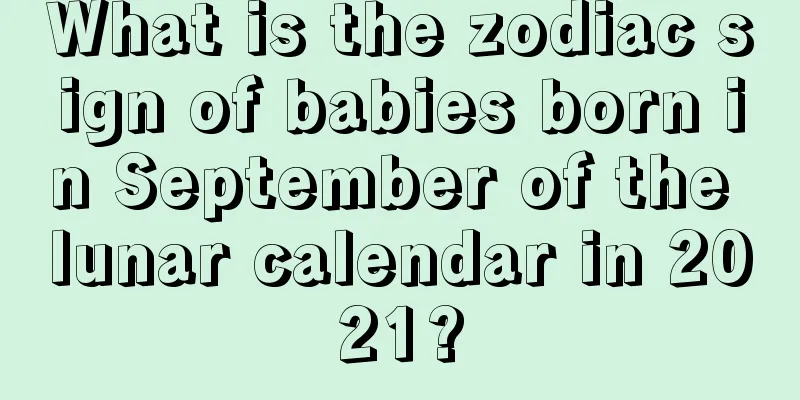What is the twelfth lunar month in 2021? What to do in the twelfth lunar month?

The twelfth month of the lunar calendar is the preparation month before the Spring Festival. Want to know more about the twelfth lunar month? The twelfth month of the lunar calendar is approaching and the weather is getting colder. Spring will surely come after the severe winter. Come to Shuimoxiansheng.com to check out more content about the twelfth month of the lunar calendar in 2021!What is the twelfth lunar month in 2021?The twelfth month of 2021 is the last month of the lunar calendar of 2021. The specific time is: 1st to 29th of the twelfth lunar month of 2021, January 03 to 31, 2022The twelfth month of the lunar calendar is also known as the twelfth month of the lunar calendar, such as Chuyue, Last Winter, Ladong, Jiaping, Jidong and Yandong. The lunar year is one year, and the twelfth month is the end of the year, at the transition period between the old and the new year, and is the month with more sacrifices. As early as the pre-Qin period, some places in my country held "year-end sacrifices" in the month when the old year transitioned from the new year. Regarding "La", there are records about "Rou Fu" and "La Wei" in "Zhou Li" and "Zhou Yi". The original meaning of "La" is "dried meat", which also refers to a method of processing meat food. The meat is marinated with salt or sauce and then placed in a ventilated place to dry. The last month of the year is called "La Yue" because it is dry and rainy between Lesser Cold and Greater Cold, with westerly monsoons blowing, making it the most suitable time for drying and making preserved meat. This is why the twelfth month of the lunar calendar is named "La Yue". What to do in the twelfth month of 2021?The customs of the twelfth lunar month are mainly related to "busy year", that is, preparing for the New Year. The “busy year” usually starts from the Little New Year and lasts until New Year’s Eve.1. Little New Year Xiaonian, a traditional Chinese festival, is the traditional day for worshiping the kitchen god and falls on the 23rd day of the twelfth lunar month every year. The main folk activities during the Little New Year include sweeping the house and offering sacrifices to the kitchen god. The Little New Year is usually regarded as the beginning of the busy year, which means that people begin to prepare New Year's goods, sweep the house, worship the kitchen god, etc., preparing to have a good new year in a clean manner. It expresses people's good wishes to bid farewell to the old and usher in the new, and to welcome good luck and fortune. 2. The 24th day of the twelfth lunar month Dust Sweeping Day, which is the 24th day of the twelfth lunar month, is the year-end cleaning, where every household cleans up cobwebs, dust and does laundry. Although it is said that "the 24th is the day to clean the house", in fact, the time from before and after the Kitchen God Festival to the end of the year is all the time for cleaning the house. In some places in China, the period from Little New Year (the 23rd day of the 12th lunar month) to New Year's Eve is called "Dust Sweeping Day" or "Spring Welcoming Day". 3. The 25th day of the twelfth lunar month The 25th day of the twelfth lunar month is the common name for the 25th day of the twelfth month of the Chinese lunar calendar (also known as the twelfth lunar month), and one of the traditional festivals of the Chinese New Year. The main traditional folk activities on this day include welcoming the Jade Emperor, lighting the fields for silkworms, the Thousand Lantern Festival, and getting rid of the chaotic old age. A Chinese proverb says: "On the twenty-fifth day of the twelfth lunar month, people grind the mill to make tofu", and there is also the saying "On the twenty-fifth day, people paste windows", which means that after sweeping the house on the twenty-fourth day of the twelfth lunar month, people should paste windows on the twenty-fifth day. 4. The 26th day of the twelfth lunar month The 26th day of the twelfth lunar month is the common name for the 26th day of the twelfth lunar month (also known as the twelfth lunar month) in the Chinese lunar calendar. It is one of the customs of the Spring Festival. The traditional custom is "stewed pork". On this day, people slaughter pigs, cut meat, and start preparing for the New Year. There is a folk proverb that goes: "On the 26th day of the twelfth lunar month, pigs are slaughtered and New Year's meat is cut." It means that this day is mainly used to prepare meat for the New Year, so it is called "New Year's meat." 5. The 27th day of the twelfth lunar month The 27th day of the twelfth lunar month is the common name for the 27th day of the twelfth lunar month (also known as "the twelfth lunar month"), one of the traditional festivals of the Chinese New Year. There is a folk saying that goes, "On the 27th day of the twelfth lunar month, slaughter chickens and go to the market." On this day, every household slaughters their own poultry and goes to market to do some shopping, mainly buying and selling New Year items such as firecrackers, spring couplets, incense and candles, burning paper, beef and mutton, various gifts for children, and various head ornaments for girls. 6. The 28th day of the twelfth lunar month The 28th day of the twelfth lunar month refers to the common name for the 28th day of the twelfth lunar month (also known as "the twelfth lunar month") in the Chinese lunar calendar, one of the traditional Chinese Spring Festival festivals. There are folk songs such as "The 28th day of the twelfth lunar month, let the dough rise" and "The 28th day of the twelfth lunar month, make cakes, steam buns and stick flowers on them." According to Chinese folk customs and traditions, on the 28th day of the twelfth lunar month, every household will start preparing staple food for the New Year, whether it is making dough or steamed buns. 7. The 29th day of the twelfth lunar month The 29th day of the twelfth lunar month, the day before New Year's Eve, is called the Little New Year's Eve and is part of Chinese folk culture. On this day, families hold banquets and people visit each other to say goodbye to the old year. Burning incense outdoors is called "tianxiang" and usually lasts for three days. 8. New Year’s Eve New Year’s Eve is the day before the Spring Festival and the last day of the twelfth lunar month every year. New Year's Eve is the last night of the year. The last day of the year is called "New Year's Eve", which means that the old year ends here and the new year begins. Since ancient times, there have been customs on New Year's Eve such as ancestor worship, staying up all night, reunion dinner, pasting red New Year gifts, and hanging lanterns. These customs have been passed down to this day and have continued for a long time. Do you want to know your own Bazi? Want to figure out where your golden marriage is? Click on the [Premium Calculation] below to calculate your horoscope and fortune! |
<<: Do people born on New Year’s Eve in the Year of the Dog have good fortune and a rich life?
Recommend
What are the do's and don'ts on the fourth day of the eleventh lunar month in 2019?
What are the do's and don'ts on the fourt...
Is it good for people born in the Year of the Ox to give birth during the Ghost Festival? What are the taboos for people born in the Year of the Ox in the Ghost Month?
The Zhongyuan Festival, also known as the Ghost Fe...
What is the personality of a girl born on August 16th of the lunar calendar in 2018? How's your talent?
A new life is born every day of the year, and peop...
Can I put a mirror in the office? What impact does putting a mirror in the office have?
Introduction: Mirrors are very familiar to people,...
What time is the summer solstice? Does the summer solstice mean that summer has arrived?
In the seventh century BC, our ancestors used a gn...
Is August 17th of the lunar calendar 2019 a good day? Can I travel?
There are good and bad days in the lunar calendar;...
Is the twelfth day of the twelfth lunar month in 2019 a good date for the Minor Cold? Is it appropriate to offer sacrifices on the Minor Cold in 2020?
Introduction: Sometimes it is necessary to choose ...
Is it okay to get a certificate for the Frost Descent on October 23, 2020? Will the weather still be hot after the Frost Descent?
Introduction: According to traditional customs, it...
Is the ninth day of the tenth lunar month in 2020 an auspicious day for moving?
The wind in the tenth month of the lunar calendar...
What is the zodiac sign of a rat baby born on September 15, 2020? Is his personality good?
Introduction: The zodiac signs of children born on...
August 30, 2020: Good and Bad Omens and Do's and Don'ts
The eighth month of the lunar calendar is halfway...
What should I do if the male owner is always sick after moving? What is the main reason?
Illness is sometimes closely related to Feng Shui....
Can I get a haircut on March 28th of the lunar calendar in 2022? What should I pay attention to when going to a barber shop?
In the third month of the lunar calendar, peach bl...
Can’t go out on the night of the winter solstice? How to deal with going out on the night of the winter solstice?
Whether it is possible to go out on the Winter Sol...
What day is the fifth day of the tenth lunar month in 2021? Is it suitable for starting renovations?
Although winter has arrived in the tenth month of ...









